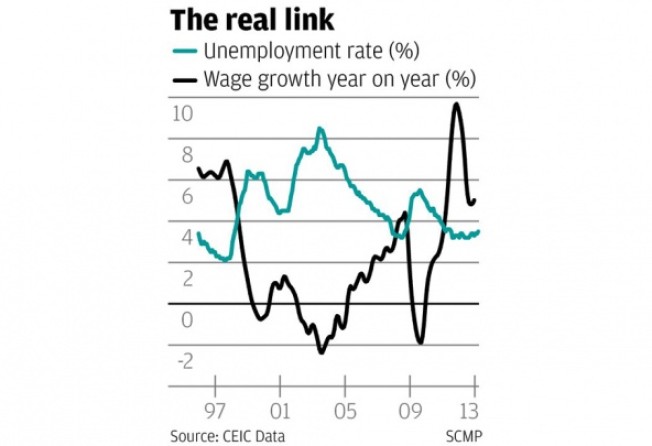
Civil service is cosiest collective bargain
Pay disparity with private sector holds back the economy and warrants more attention than the government-led finger-pointing at the dockers

A collective bargaining law would not help the working class if the economy did not look good, Chief Executive Leung Chun-ying said yesterday.
SCMP, May 10
Do I take it then, C.Y., that you would be in favour of a collective bargaining law if the economy did look good? And what is so bad about the look of the economy at the moment, Sir?
Let me set out my stance. My libertarian principles compel me to accept that if we encourage people to pool their money to form companies, then we have no grounds for discouraging people from pooling their labour to form unions. And, contrary to what our chief executive appears to say, we do already have a collective bargaining law. It is written into Article 27 of the Basic Law, which grants us freedom of association. Every international law decision has accepted that this confers the right to form trade unions for collective bargaining.
It doesn't force employers to bow to union demands but it does say that a striking dock worker can tell his boss, "Lee Cheuk-yan over there speaks for me", and that his government has no right to stop him from doing so.
I think the point is particularly worth making because there is an element of hypocrisy in the vehemence with which some government officials have blamed port workers for the recent container port strike and repeatedly told them to go back to work without a formal settlement.
The last time anyone ran a proper independent survey on government pay was more than 10 years ago. It was commissioned by the Hong Kong General Chamber of Commerce and conducted by human resources specialists Watson Wyatt Worldwide. It showed that on a like-for-like basis, civil servants were paid almost three times as much in total compensation as their private-sector counterparts. The civil servants took great umbrage at these findings, of course, and had the government conduct its own survey, which conveniently ignored all civil service perks and then skewed the like-for-like comparisons. This inevitably showed a lesser margin of overpay. No one has since found reason to annoy civil servants by conducting an independent survey.
We have very strong unions in Hong Kong. They are the civil service unions. They can get what they want without striking, because the decision makers on their pay are promoted directly from their own ranks and because they don't have to struggle in a competitive market to make money, as the rest of us do. They can just dun a third party for it - us.
It's the way things have gone around the world. Private-sector unions are in decline, but public-sector unions are stronger than ever, and the pay disparity between the two steadily increases.
Let's set C.Y. straight about the economy. The link between growth of gross domestic product and wage increases is actually rather tenuous. When times are good, employers pay shareholders more before they think of employees.
There is a much closer link, an inverse one, between unemployment and wage growth, as the chart shows. The workers get priority when there is a shortage of workers. The bosses pay more only when they have to do so.
But government can always skew things back in favour of employers by opening our borders to labour migrants. It's the favoured solution. Look at any road maintenance crew these days.
The result is ever wider income disparity and a braking effect on the pace of our economic development. We have far too many menial jobs in this town for an economy so rich. But then we must all speak for our constituents, and C.Y. has spoken for his.